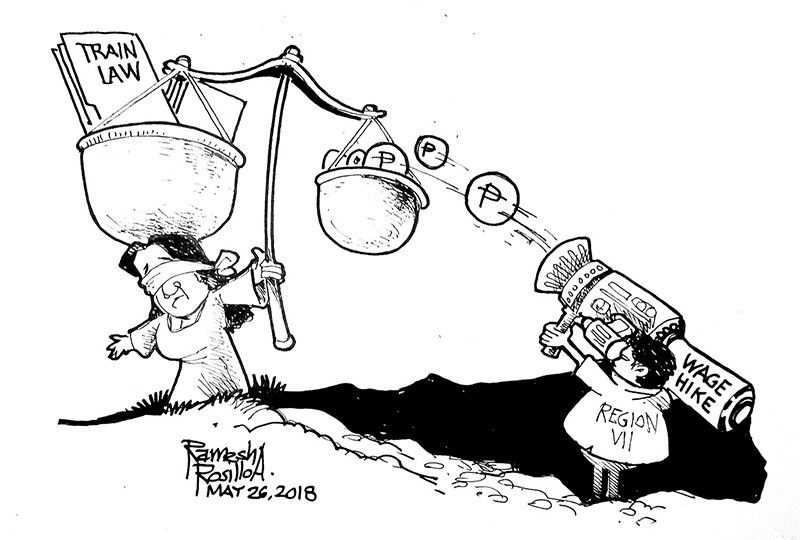EDITORIAL - Wage adjustment

It seems another round of wage hikes in Central Visayas is imminent with the concurrence of the Regional Tripartite Productivity Board-7 about the need for a salary adjustment for workers in the private sector.
All RTWPB-7 members have agreed to another take-home pay increase regionwide. But it remains to be seen how much they will decide to approve. The decision will be known during their deliberations on June 7.
Months ago, the Associated Labor Unions-Trade Union Congress of the Philippines and the Cebu Labor Coalition filed two wage petitions seeking for P120 and P155 salary adjustments, respectively. The labor sector, however, has strongly opposed any increase, contending that it is not a good idea in this time when many businesses are preoccupied with cost-cutting measures.
But we cannot blame the labor sector for insisting upon a new round of wage hikes. It's well within their rights to air such clamor since we cannot deny the fact that they are now going through a very tough time following the implementation of the Tax Reform for Acceleration and Inclusion (TRAIN) Law early this year.
The TRAIN Law seems to have a very negative effect on the poor because it has some measures that seek to increase taxes in some products. These measures have forced prices of basic commodities to hike and effectively erased the income tax-free incentive that the government has granted to minimum wage earners.
However, it is not only the labor sector that is suffering from the effects of TRAIN Law. The increasing prices of fuel, among others, have also been taking toll on the business sector given the rising cost of importation and transportation of materials.
Of course, the regional wage board was left with no option other than to hike the minimum wage. But it should see to it that such adjustment is fair and reasonable to both sectors. Any unjustified rate increase is certainly bad for business.
- Latest






















